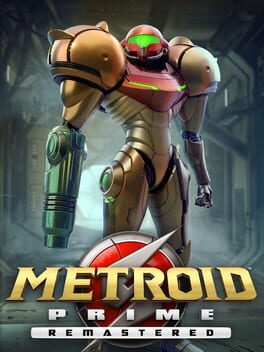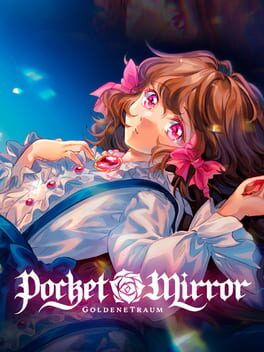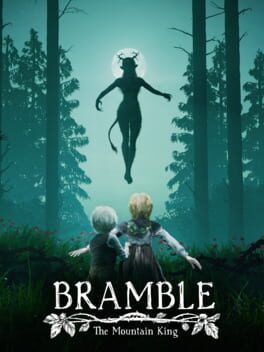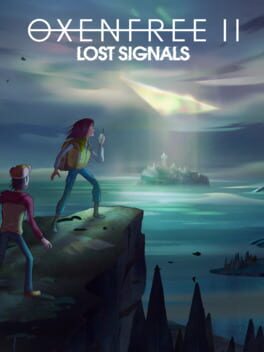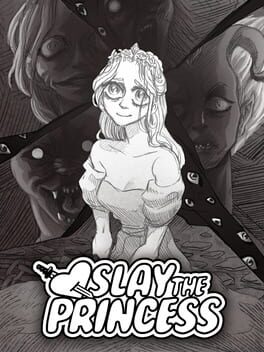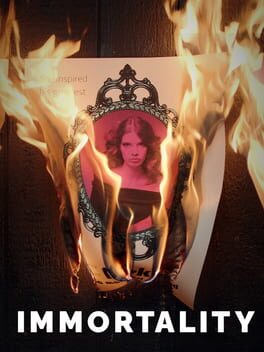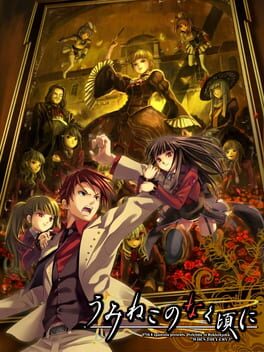adjansen
2014
Subnautica puts a few too many ingredients into the mechanics blender imo, or maybe I’m just not a big fan of survival games. Thankfully you can turn the surivival mechanics off and the game is much more fun and no less complete without them.
Despite the gameplay feeling like a derivative buffet calculated to please everyone (the generic maleness of the protagonist, which serves no narrative purpose, likewise feels like pandering to an imagined audience), Subnautica ends up being really good, thanks to its world just being so damn cool. The alien ocean of Subnautica feels more real to me, more alive and vibrant, than almost any other gaming environment, and the atmosphere strikes a perfect seesaw balance between horror and wonder. This is not only one of the best exploration games out there but maybe the game that comes closest to capturing the spirit of classic science fiction, with its mixture of reverence and terror regarding nature and the unknown. Even the story is good, which I wasn’t expecting at all!
Despite the gameplay feeling like a derivative buffet calculated to please everyone (the generic maleness of the protagonist, which serves no narrative purpose, likewise feels like pandering to an imagined audience), Subnautica ends up being really good, thanks to its world just being so damn cool. The alien ocean of Subnautica feels more real to me, more alive and vibrant, than almost any other gaming environment, and the atmosphere strikes a perfect seesaw balance between horror and wonder. This is not only one of the best exploration games out there but maybe the game that comes closest to capturing the spirit of classic science fiction, with its mixture of reverence and terror regarding nature and the unknown. Even the story is good, which I wasn’t expecting at all!
We all know that Metroid Prime is good. But is it actually fun to play? In my case, tragically, only kinda? Which is bonkers given everything this game has going for it. It’s beautiful and atmospheric (the remastered graphics are so pretty!), even quite effectively spooky at times. The gameplay replicates the experience of a 2D Metroid in a 3D world without losing a thing in translation, which is impressive even today, so I can only imagine how revolutionary it must have been twenty years ago. Good first-person platforming in a game of this era?! What the heck.
So what’s the deal? Has all the joy been sucked out of this formula for me by Metroidvania oversaturation? That might be part of it tbh. It also dawned on me while I was playing that I really do not enjoy the combat in this game, like, at all. At its best it is just kind of there; at its worst it can be incredibly annoying. And although there is less pew-pew than in other FPS games, it still feels like there’s a lot more of it than there needs to be. Why am I fighting the same dang respawned space pirate for the fifty-eighth time? What sort of satisfaction am I meant to derive from this? It often feels like the combat is only there to slow down and pad out the exploration, which is far more rewarding—or would be, if the combat wasn’t constantly interrupting and turning it into a frustrating chore. Honestly I think I would prefer a version of this game with all enemies except bosses removed, Shadow of the Colossus-style.
Speaking of bosses, I’m stuck on the final one, and after a few attempts, I’m not sure that I actually care enough to try again. Which is sad. Usually, if I sink enough time into a game to make it that far, I’ll keep trying until the bitter end. But in the case of Metroid Prime I had to step back and ask myself if I was really having any fun with it anymore. I’m still mulling that one over.
So what’s the deal? Has all the joy been sucked out of this formula for me by Metroidvania oversaturation? That might be part of it tbh. It also dawned on me while I was playing that I really do not enjoy the combat in this game, like, at all. At its best it is just kind of there; at its worst it can be incredibly annoying. And although there is less pew-pew than in other FPS games, it still feels like there’s a lot more of it than there needs to be. Why am I fighting the same dang respawned space pirate for the fifty-eighth time? What sort of satisfaction am I meant to derive from this? It often feels like the combat is only there to slow down and pad out the exploration, which is far more rewarding—or would be, if the combat wasn’t constantly interrupting and turning it into a frustrating chore. Honestly I think I would prefer a version of this game with all enemies except bosses removed, Shadow of the Colossus-style.
Speaking of bosses, I’m stuck on the final one, and after a few attempts, I’m not sure that I actually care enough to try again. Which is sad. Usually, if I sink enough time into a game to make it that far, I’ll keep trying until the bitter end. But in the case of Metroid Prime I had to step back and ask myself if I was really having any fun with it anymore. I’m still mulling that one over.
Pocket Mirror is a bonkers gothic fever dream that isn’t well written and doesn’t make sense, but somehow that almost works in its favor? Let me be clear—the story is truly not good, and in a story-based game, that is usually a deal-breaker. But Pocket Mirror is not so much a story as a surrealist collage of tropes and aesthetics, and on this level, the everything-but-the-kitchen-sink approach pays off. You like jack-o-lanterns? Pocket Mirror’s got ’em. You like doppelgangers, creepy dolls, stuffed animals, eyes, roses, blood, blood on roses, blood on eyes, eyes on eyes, candles, tea parties, stained glass windows, crucifixion, churches, manors, theaters, circuses, unspeakable family secrets, and evil laughter? (Lots of evil laughter?)
Yep. Pocket Mirror’s got all that too. If this kind of stuff speaks to your subconscious, you will probably vibe with this game on some level, since it is mainly an excuse to serve up increasingly gorgeous set-pieces on increasingly lavish platters. And while the service may be amateurish, even hilariously bumbling at times, you can’t deny that the dishes were made with love. And jesus christ do they look good.
Yep. Pocket Mirror’s got all that too. If this kind of stuff speaks to your subconscious, you will probably vibe with this game on some level, since it is mainly an excuse to serve up increasingly gorgeous set-pieces on increasingly lavish platters. And while the service may be amateurish, even hilariously bumbling at times, you can’t deny that the dishes were made with love. And jesus christ do they look good.
As many others have noted, this is basically Little Nightmares but Swedish. Also there are a bunch of boss fights for some reason. (Who asked for so many boss fights in a game like this??)
The strength of Bramble is definitely its pretty woodland aesthetic which approaches photorealism at times. The world of the game feels so organic and lush I wanted to lose myself in it. Unfortunately the game itself prevented me from doing that. The gameplay is functional but offers no surprises to anyone who has played a cinematic platformer before, and despite being fairly short, Bramble manages to wear out its welcome by reusing many of the same challenges.
The story is also pretty flimsy. I love fairy tales, especially dark and spooky ones, so I am pretty squarely in the target demographic for this game. But Bramble’s story is really just a clothesline for the developers to hang whatever folklore reference happened to pop into their heads that day on. The only unifying theme here is “creepy and Scandinavian,” and the creepiness often feels forced in a cringey grimdark sort of way. (The tone is not far from a Hollywood movie trailer; you can almost hear the voiceover guy: “These aren’t your grandma’s bedtime stories...”) Folktales are dark, yes, but they are dark because they are about real things in life that are scary. The horrors in Bramble never feel human; they feel like things the developers thought would be cool to put in a video game.
The main problem I suspect is that Olle, our sweet little blonde boy, is boring as hell. I honestly have no idea why we are playing as him. What would a boy his age be afraid of and why? What conflict might there be between him and his sister? What lesson is he supposed to learn? The developers don’t seem to care, so there’s no emotional thread pulling us along, just a vague aesthetic interest in what spectacle they’ll throw at us next. It was enough to pull me through to the end, I guess, barely. But my patience was wearing mighty thin by the end.
Oh and SPOILER WARNING I guess the lesson we are meant to have learned from our trek in the woods, after enduring five hours of nonstop mortal peril and trauma that would leave any child permanently scarred, is...not to be afraid of the woods? lmao
The strength of Bramble is definitely its pretty woodland aesthetic which approaches photorealism at times. The world of the game feels so organic and lush I wanted to lose myself in it. Unfortunately the game itself prevented me from doing that. The gameplay is functional but offers no surprises to anyone who has played a cinematic platformer before, and despite being fairly short, Bramble manages to wear out its welcome by reusing many of the same challenges.
The story is also pretty flimsy. I love fairy tales, especially dark and spooky ones, so I am pretty squarely in the target demographic for this game. But Bramble’s story is really just a clothesline for the developers to hang whatever folklore reference happened to pop into their heads that day on. The only unifying theme here is “creepy and Scandinavian,” and the creepiness often feels forced in a cringey grimdark sort of way. (The tone is not far from a Hollywood movie trailer; you can almost hear the voiceover guy: “These aren’t your grandma’s bedtime stories...”) Folktales are dark, yes, but they are dark because they are about real things in life that are scary. The horrors in Bramble never feel human; they feel like things the developers thought would be cool to put in a video game.
The main problem I suspect is that Olle, our sweet little blonde boy, is boring as hell. I honestly have no idea why we are playing as him. What would a boy his age be afraid of and why? What conflict might there be between him and his sister? What lesson is he supposed to learn? The developers don’t seem to care, so there’s no emotional thread pulling us along, just a vague aesthetic interest in what spectacle they’ll throw at us next. It was enough to pull me through to the end, I guess, barely. But my patience was wearing mighty thin by the end.
Oh and SPOILER WARNING I guess the lesson we are meant to have learned from our trek in the woods, after enduring five hours of nonstop mortal peril and trauma that would leave any child permanently scarred, is...not to be afraid of the woods? lmao
2022
Pentiment is enshrined in my pantheon of great narrative games alongside such modern classics as Kentucky Route Zero, Night in the Woods, and Disco Elysium. It demands more from the player than most games do, asking you to adjust to the rhythms and customs of country life in medieval Bavaria, and then to care about a very large and tangled web of relationships, with dozens of named characters who all know and gossip about each other, and also age and marry and have children and get sick and die. It took a while to grow on me, but I’ve rarely felt more rewarded for my investment. Highly recommended to anyone with the patience for it.
Huh. I wish I got more out of this game. It isn’t bad by any stretch; the atmosphere, which was a strength of the original Oxenfree, is even better here, with lovely sound design and pretty artwork, and nothing in the story jumped out at me as especially objectionable, although ymmv on that front. It all just feels very...slight? It’s a short game, there aren’t many characters, the gameplay is exactly what you would expect, and the story holds only a few mild revelations (even fewer if you’ve played the first game). Everything feels made on a miniature scale. Maybe I shouldn’t have played this in such close proximity to Pentiment, which has the density of a good novel, and allowed me to invest in the characters on a deeper level. Oxenfree II feels closer in spirit to a Netflix special. It looks and sounds good, but there is never enough substance or risk-taking to really wow you. Oh well.
2023
2020
I am kind of a hater. My bitter soul shivers with icy excitement at the opportunity to nitpick that which is well-loved. BG3 offers a lot of nits to pick, especially if you are a story-motivated player. The overall story is, imo, surprisingly not good for a game that has received so much praise in that department. The strain of trying to weave together so many plot threads really shows. There are a lot of names thrown around that are probably supposed to be important, and goofy fantasy words that are probably supposed to mean something, and like twelve magical MacGuffins, and it all feels a bit like an AI was fed a long list of D&D tropes and tasked with fitting them in the same game. Also, whenever the story flirts with horror, it feels a bit like a bad FromSoft pastiche?
That said, there are quite a few scenes and character bits that work well in isolation. What probably happened is the developers were afraid of the game feeling too meandering and directionless, so they tried to superimpose a structure onto all these scattered backstory and sidequest ideas they had. Although I understand the impulse, the main plot is easily the dumbest and most boring part of the game, unfortunately. I think I would have preferred if the party was only traveling together because they all wanted to go to Baldur’s Gate for personal reasons–no big looming threat necessary.
Nevertheless, even my miserable shriveled little heart was warmed one or two paltry degrees by my time (roughly ten bazillion hours) with Baldur’s Gate 3. At the end of the day, it’s D&D in video game form with lots of fun and hot party members who want to bone you. It’s kind of a hard formula to mess up? Which is silly to say considering it’s also a very hard formula to, like, do, at all, given the bonkers amount of content, so I applaud them for trying. But what I mean is that the game is solid enough that bad writing is not a deal-breaker, and the moments when the writing does work are kind of nice little treats–a bit like eating Lucky Charms with not enough marshmallow pieces in it. Yes, of course, it would be nice if there were more marshmallows, but you’re still going to eat too many bowls like a big dork because hell yes the vampire twink is dtfff
That said, there are quite a few scenes and character bits that work well in isolation. What probably happened is the developers were afraid of the game feeling too meandering and directionless, so they tried to superimpose a structure onto all these scattered backstory and sidequest ideas they had. Although I understand the impulse, the main plot is easily the dumbest and most boring part of the game, unfortunately. I think I would have preferred if the party was only traveling together because they all wanted to go to Baldur’s Gate for personal reasons–no big looming threat necessary.
Nevertheless, even my miserable shriveled little heart was warmed one or two paltry degrees by my time (roughly ten bazillion hours) with Baldur’s Gate 3. At the end of the day, it’s D&D in video game form with lots of fun and hot party members who want to bone you. It’s kind of a hard formula to mess up? Which is silly to say considering it’s also a very hard formula to, like, do, at all, given the bonkers amount of content, so I applaud them for trying. But what I mean is that the game is solid enough that bad writing is not a deal-breaker, and the moments when the writing does work are kind of nice little treats–a bit like eating Lucky Charms with not enough marshmallow pieces in it. Yes, of course, it would be nice if there were more marshmallows, but you’re still going to eat too many bowls like a big dork because hell yes the vampire twink is dtfff
2023
The strengths of Jusant are the climbing mechanics and the world itself, which tickles all the wonder sensors in the brain while feeling like a lived-in place. The game simply gives you a very cool structure to clamber around for a while and doesn’t try to do much more than that. Which was probably smart, because what little else there is to this game is noticeably less good. Pretty much every time the map opened up, I got stuck not knowing which way to go. As little exploration as there is, I kind of wish the whole thing had just been on rails to reduce this frustration, since it is ultimately a linear game.
Finally, the story is maybe a little too enigmatic for its own good. I understand that they were going for an open-ended minimalist mystical kind of vibe, in the vein of games like Journey, but idk how well that works with a premise and setting that feel more like hard science fiction. There are a few scattered clues here and there as to what is up with the planet and its ecosystem, but they are easy to miss and take a lot of work to piece together, which is a shame because they make the game way more interesting.
Finally, the story is maybe a little too enigmatic for its own good. I understand that they were going for an open-ended minimalist mystical kind of vibe, in the vein of games like Journey, but idk how well that works with a premise and setting that feel more like hard science fiction. There are a few scattered clues here and there as to what is up with the planet and its ecosystem, but they are easy to miss and take a lot of work to piece together, which is a shame because they make the game way more interesting.
2022
Umineko seems to be a love-it-or-hate-it experience for a lot of people. It was more of a love-it-and-hate-it kind of thing for me. There is just...so much packed into this story, both good and bad! The good is super good, but the bad is also pretty bad. For the sake of my sanity, this is going to be more of a list than a proper review.
Loved:
(1) The premise. Umineko is, from the start, just a really fun genre parfait. You’ve got mystery, horror, and fantasy tropes in there, mixed with nice crunchy bits of gothic family drama, and it’s all drizzled with a metafictional fudge on top. It’s a unique set-up with tons of atmosphere and so much storytelling potential.
(2) The characters. Umineko has a huge cast of memorable characters brought to life by some of the best voice acting I have ever heard. I could listen to Ohara Sayaka cackle all day long. (If you like evil laughter, Umineko occupies at least, like, six out of ten spots in the Top Ten Best Evil Laughs in Video Games.) The character writing in general is extremely good. It’s possible to forget—for hours at a time—that these are silly-looking sprites in a goofy anime game, because they feel so much like real people. Even the most despicable characters remain compelling (Rosaaaa), and all of the relationships, especially the family dynamics, are believable and complex.
(3) The themes. Umineko is thematically ambitious to a fault, but it’s refreshing to see a story just really go for it. There are so many Big Ideas in this game. While I’m doubtful that it succeeds in saying much of anything sensible in the end, I appreciate that it is earnestly trying to say something—often several things at once—and if I had, oh, a few hundred spare hours of free time lying around, I might be tempted to read it a second time to peel back more of the layers.
(4) The artwork. I know I called the sprites “silly-looking” (they are) but Ryukishi’s art really grows on you—the clumsiness is endearing and the facial expressions are wonderful. (I hate the console and pachinko sprites but ymmv.)
(5) The soundtrack. It’s banger after banger p much.
Hated:
(1) The otaku shit. Umineko was written for an audience of hardcore VN fans. Every time I was reminded of this target audience, and how much I do not belong to it, it was like nails on a chalkboard. They aren’t so pervasive as to ruin the experience, but the pandering in-jokes and fanservicey moments really pulled me out of the story. Moreover, the game was released serially for the most dedicated fans to devour chapter by chapter, line by line, going over each scene with a fine-tooth comb for clues. Many of the storytelling choices make less sense removed from this original context. I often felt like the author was being maddeningly opaque for no reason; in fact, he is being opaque on purpose (to give fans more grist for the theory-crafting mill), but unless you have approximately ten zillion hours of free time to set aside for note-taking and puzzle-solving, this habit of never saying anything directly will likely just drive you up the wall.
(2) The mysteries. Umineko is not really about the mysteries—it’s more interested in the abstract concept of Mystery Fiction than in the nitty-gritty details of each murder—but, on the other hand, it’s not really not about the mysteries, since they take up at least a hundred hours of the time you will spend reading this dang thing (and considerably more time than that if you actually try to solve them). It is a shame, then, that the mysteries kinda blow. Ryukishi wants us to believe that the “whodunnit”—it was Colonel Mustard in the library with a candlestick!—is less important than the “whydunnit,” the tortured heart behind the crimes. But the one time that “whydunnit” matters, it is explained in such a convoluted way as to be virtually nonsensical, and actually made me understand the character less than I did before. You also have to wait seven chapters for this motive to be revealed—and that’s it. That’s all you get. The rest of the mysteries are just soulless logic puzzles. The author has so little interest in them by the end that he just sweeps them all aside in a single scene—and frankly I don’t blame him, because the solutions are so underwhelming, I wouldn’t want to draw any attention to them either. A few questions are raised which do have satisfying answers, but they are mostly regarding background details; overall, Umineko is far more successful as a story about mysteries than as a mystery story.
(3) The themes. I know I said I liked the themes, but the thematic ambition of Umineko is also kind of its downfall. Especially in the second half, the more Ryukishi tries to draw all these thematic threads together into a bow, the more they get tangled up in a big perplexing wad of nothing. Part of the problem is a terminal case of trying to have his cake and eat it too. Like, do the mysteries matter, or don’t they? If the pursuit of a single truth is so wrongheaded, why expend so many thousands of words encouraging readers in that pursuit? Why must love and truth, empathy and reality, be diametrically opposed? The last chapter, rather than bringing clarity to these contradictions, retreats into boring cliches, and sometimes plain old falsehoods. It is quite seriously suggested that the only way to overcome trauma, actually, is to run away from reality and escape into a fantastical delusion, because, uhhh, that’s the power of magic, folks?? Ryukishi’s best writing is rooted in his experience as a social worker, and his sharp observations of human behavior, but every once a while he just runs obliviously into the limits of his own perspective with a resounding smack, and it’s a huge bummer that one of his most embarrassing fumbles comes as he is trying to deliver a grand statement. He simply does not understand trauma well enough to say anything meaningful about it, and I’m not convinced that the other themes fare much better in the end.
(4) George Ushiromiya. He sucks.
This is, of course, an extremely distilled and spoiler-redacted version of my thoughts on Umineko; I could probably write a dissertation or two about this game. While I’m on the fence about whether I think it’s good or not, I am glad that I read it, and I can see why it resonates with so many people. I will certainly remember the characters, if nothing else. As for the rest—well, as Ryukishi would probably tell you if your family had been brutally murdered by goat demons, just use the power of magic, and pretend it never happened!
Loved:
(1) The premise. Umineko is, from the start, just a really fun genre parfait. You’ve got mystery, horror, and fantasy tropes in there, mixed with nice crunchy bits of gothic family drama, and it’s all drizzled with a metafictional fudge on top. It’s a unique set-up with tons of atmosphere and so much storytelling potential.
(2) The characters. Umineko has a huge cast of memorable characters brought to life by some of the best voice acting I have ever heard. I could listen to Ohara Sayaka cackle all day long. (If you like evil laughter, Umineko occupies at least, like, six out of ten spots in the Top Ten Best Evil Laughs in Video Games.) The character writing in general is extremely good. It’s possible to forget—for hours at a time—that these are silly-looking sprites in a goofy anime game, because they feel so much like real people. Even the most despicable characters remain compelling (Rosaaaa), and all of the relationships, especially the family dynamics, are believable and complex.
(3) The themes. Umineko is thematically ambitious to a fault, but it’s refreshing to see a story just really go for it. There are so many Big Ideas in this game. While I’m doubtful that it succeeds in saying much of anything sensible in the end, I appreciate that it is earnestly trying to say something—often several things at once—and if I had, oh, a few hundred spare hours of free time lying around, I might be tempted to read it a second time to peel back more of the layers.
(4) The artwork. I know I called the sprites “silly-looking” (they are) but Ryukishi’s art really grows on you—the clumsiness is endearing and the facial expressions are wonderful. (I hate the console and pachinko sprites but ymmv.)
(5) The soundtrack. It’s banger after banger p much.
Hated:
(1) The otaku shit. Umineko was written for an audience of hardcore VN fans. Every time I was reminded of this target audience, and how much I do not belong to it, it was like nails on a chalkboard. They aren’t so pervasive as to ruin the experience, but the pandering in-jokes and fanservicey moments really pulled me out of the story. Moreover, the game was released serially for the most dedicated fans to devour chapter by chapter, line by line, going over each scene with a fine-tooth comb for clues. Many of the storytelling choices make less sense removed from this original context. I often felt like the author was being maddeningly opaque for no reason; in fact, he is being opaque on purpose (to give fans more grist for the theory-crafting mill), but unless you have approximately ten zillion hours of free time to set aside for note-taking and puzzle-solving, this habit of never saying anything directly will likely just drive you up the wall.
(2) The mysteries. Umineko is not really about the mysteries—it’s more interested in the abstract concept of Mystery Fiction than in the nitty-gritty details of each murder—but, on the other hand, it’s not really not about the mysteries, since they take up at least a hundred hours of the time you will spend reading this dang thing (and considerably more time than that if you actually try to solve them). It is a shame, then, that the mysteries kinda blow. Ryukishi wants us to believe that the “whodunnit”—it was Colonel Mustard in the library with a candlestick!—is less important than the “whydunnit,” the tortured heart behind the crimes. But the one time that “whydunnit” matters, it is explained in such a convoluted way as to be virtually nonsensical, and actually made me understand the character less than I did before. You also have to wait seven chapters for this motive to be revealed—and that’s it. That’s all you get. The rest of the mysteries are just soulless logic puzzles. The author has so little interest in them by the end that he just sweeps them all aside in a single scene—and frankly I don’t blame him, because the solutions are so underwhelming, I wouldn’t want to draw any attention to them either. A few questions are raised which do have satisfying answers, but they are mostly regarding background details; overall, Umineko is far more successful as a story about mysteries than as a mystery story.
(3) The themes. I know I said I liked the themes, but the thematic ambition of Umineko is also kind of its downfall. Especially in the second half, the more Ryukishi tries to draw all these thematic threads together into a bow, the more they get tangled up in a big perplexing wad of nothing. Part of the problem is a terminal case of trying to have his cake and eat it too. Like, do the mysteries matter, or don’t they? If the pursuit of a single truth is so wrongheaded, why expend so many thousands of words encouraging readers in that pursuit? Why must love and truth, empathy and reality, be diametrically opposed? The last chapter, rather than bringing clarity to these contradictions, retreats into boring cliches, and sometimes plain old falsehoods. It is quite seriously suggested that the only way to overcome trauma, actually, is to run away from reality and escape into a fantastical delusion, because, uhhh, that’s the power of magic, folks?? Ryukishi’s best writing is rooted in his experience as a social worker, and his sharp observations of human behavior, but every once a while he just runs obliviously into the limits of his own perspective with a resounding smack, and it’s a huge bummer that one of his most embarrassing fumbles comes as he is trying to deliver a grand statement. He simply does not understand trauma well enough to say anything meaningful about it, and I’m not convinced that the other themes fare much better in the end.
(4) George Ushiromiya. He sucks.
This is, of course, an extremely distilled and spoiler-redacted version of my thoughts on Umineko; I could probably write a dissertation or two about this game. While I’m on the fence about whether I think it’s good or not, I am glad that I read it, and I can see why it resonates with so many people. I will certainly remember the characters, if nothing else. As for the rest—well, as Ryukishi would probably tell you if your family had been brutally murdered by goat demons, just use the power of magic, and pretend it never happened!

